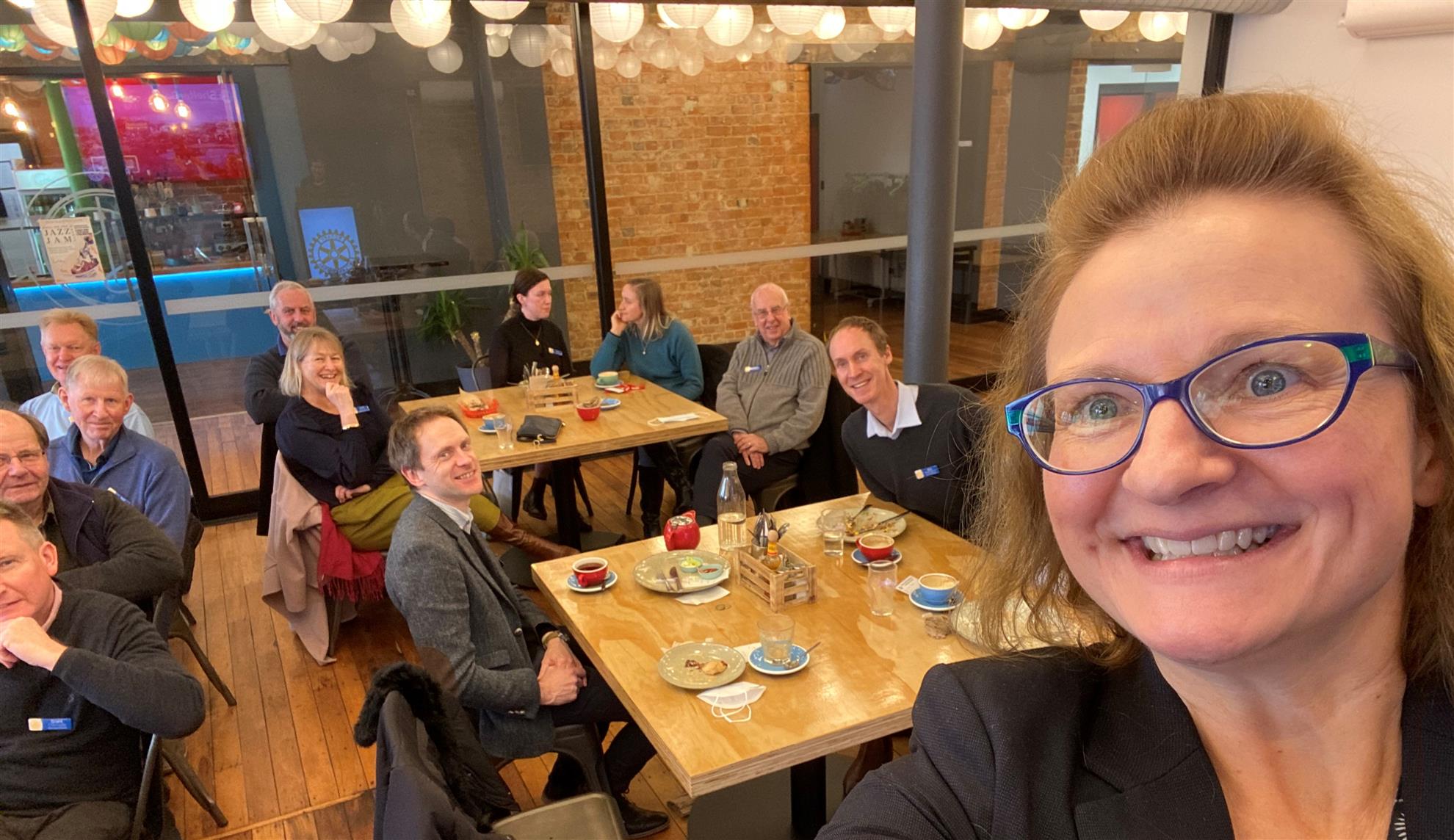 ShelterBox is a global humanitarian relief organisation that, for 22 years, has been hand-delivering
ShelterBox is a global humanitarian relief organisation that, for 22 years, has been hand-deliveringemergency shelter to families devastated by disaster and conflict. Globally about 113 million people
have been made homeless by natural disaster and conflict – that’s 20 times the population of NZ -
and of those people 35 million are children. In the hour of our Rotary meeting 1,500 people would
have had to flee their homes Source: UNHCR – United Nations High Commissioner for Refugees.
ShelterBox recognises shelter as a human right and is committed to providing families with safe
shelter and tools they need to rebuild their lives and communities in the face of extreme hardship.
ShelterBox began in 2000 as a Rotary Club project, evolved into an independent charitable
organisation, and has been Rotary International’s Project Partner for disaster relief for the last ten
years. ShelterBox NZ was founded by the Mosgiel Rotary Club in 2006. Since it began ShelterBox has
helped over 2 million people in 98 countries.
Jackie outlined what’s in a box and that aid is not ‘one size fits all’. Rather it has adapted over time
and there are now over 70 items which can be grouped together in different ways and tailored for
each situation. For example, a ShelterKit containing high quality tarpaulins, rope, and tools can help
repair a home that has been damaged. The tools can continue to be used, like for replanting or for
someone with skills to earn a living helping others repair their homes. Even the rope can be
unwound and used as fishing line. Aid helps families recover and find some ‘normalcy’.
There is a 4-step process ShelterBox follows: 1) decision to deploy based on criteria 2) deployment of
specialist ShelterBox Response Teams in-country to deliver aid, with essential help from partners like
Rotary 3) training families how to use and care for equipment 4) assessment 3-6 months after
delivery to learn from families who received the aid whether it was right for their needs and to
ensure continuous improvement.
In response to the conflict in Ukraine ShelterBox had teams in Moldova, Poland and Western
Ukraine within 5 days after the conflict started in February, to assess need. They’re still there
working on 3 projects: 1) supplying mattresses for people who cross the border at Lviv seeking
shelter, safety, and rest in collective centres 2) providing ShelterKits, thermal blankets, solar lights
and water carriers to people still in Ukraine who are living in buildings damaged by shelling, without
heat, power or running water 3) in Moldova providing transportable items like hygiene kits, warm
coats, and small amounts of cash for people to use for food and other essentials as they make their
way to their next location. Unfortunately nobody knows how long the conflict will continue, but
ShelterBox has experience of providing sustainable and enduring support having operated in Syria
for ten years now.
Jackie concluded by emphasising the important role that ShelterBox’s community of supporters and
volunteers – including Rotarians – play in making the work of ShelterBox possible. Anyone who
would like to volunteer could do so by becoming a ShelterBox Ambassador and presenting on
ShelterBox to groups (pre-made presentations can be provided), or by offering other skills to spread
awareness and raise funds (examples range from bake sales to running marathons) or liking and
sharing ShelterBox information on social media: info@shelterbox.org.nz;
facebook.com/ShelterBoxNZ; Instagram @shelterboxnz. Reach out to Jackie if you have any
questions on how to support ShelterBox and families in need.

